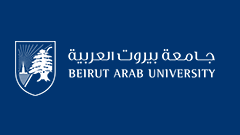Abstract
Architecture is a fast changing domain. Nevertheless, architectural education in Egypt can often not keep pace with those fast changes. Namely, graduate students start to realize that there are practical experiences like dealing with clients, working in large teams and acquiring knowledge related to architectural software independently which they do not obtain in undergraduate years, but wish that they did! This raises the question of how far should the architecture educational process change from Teaching to Learning ?As a matter of fact, the educational process at any architectural department is defined to a very high extent by the physical attributes of the department's spaces. Educational environments created by both, the physical interior and the educational method are assumed to be responsible for students completely adhering to academic content and not being able to acquire new knowledge independently, innovate and develop the necessary work competencies. Therefore, the department of architecture at the Faculty of Engineering (University of Alexandria) is taken as a study case. A questionnaire among fresh graduate students is carried out to obtain feedback concerning the education provided. Meanwhile, a field survey is conducted to assess the most important key features of the department's physical space which affect the educational process as revealed through literature review. Finally the paper compares survey findings with questionnaire results and recommends a set of physical and educational changes to be made in order for shifting the educational process to be more learning-oriented at the department subjected to study.
Keywords
Architecture, education, teaching, learning, design
Disciplines
Architecture | Arts and Humanities | Education | Engineering
Recommended Citation
Elbakly, Rana and Ibrahim, Mohamed
(2016)
"ARCHITECTURAL EDUCATION ENVIRONMENTS: WHERE TEACHING ENDS AND LEARNING BEGINS,"
Architecture and Planning Journal (APJ): Vol. 23:
Iss.
2, Article 7.
DOI: https://doi.org/10.54729/2789-8547.1076
Included in
Architecture Commons, Arts and Humanities Commons, Education Commons, Engineering Commons

